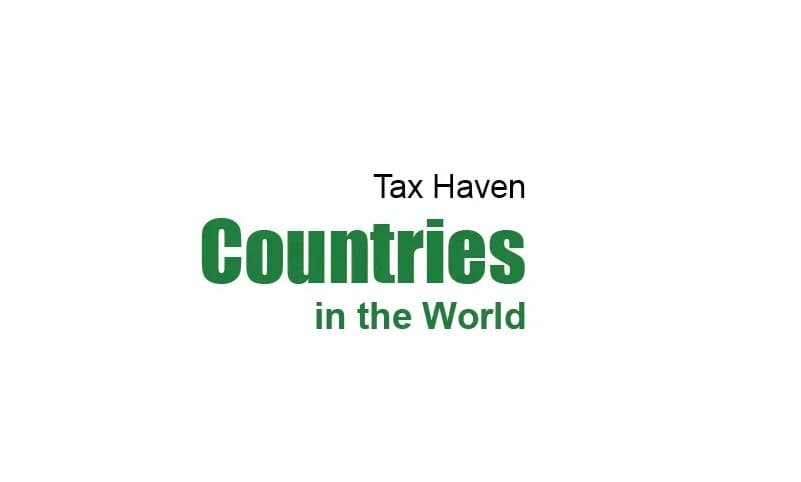What is a Tax Haven?
In the realm of global finance, the term “tax haven” often surfaces, evoking images of exotic locales where the wealthy park their fortunes. But what exactly is a tax haven, and what are its implications? This article delves into the definition of a tax haven, its advantages and disadvantages, and lists some of the top tax haven countries.
Tax Haven Definition
A tax haven is a jurisdiction, often a country or territory, that offers minimal tax liability to foreign individuals and businesses. These havens provide a range of financial advantages, such as low or no taxes, strict bank secrecy laws, and a lack of financial transparency. As a result, they attract a significant amount of foreign capital.
What is a Tax Haven?
A tax haven is a place where certain taxes are levied at a low rate or not at all. Individuals and businesses can take advantage of these jurisdictions to reduce their tax burdens, often legally. The key characteristics of tax havens include:
- Low or No Taxes: Minimal tax rates on personal and corporate income, capital gains, and other financial activities.
- Confidentiality: Stringent laws that protect the privacy of financial transactions and client information.
- Lack of Transparency: Limited exchange of financial information with foreign tax authorities.
- Ease of Business Formation: Simplified procedures for setting up corporations, trusts, and other entities.
Advantages of Tax Havens
1. Tax Reduction
- Lower Tax Bills: The primary advantage is the reduction of tax liabilities, allowing individuals and corporations to retain more of their earnings.
- Tax Planning: Enables strategic tax planning and optimization, making it possible to minimize overall tax expenses.
2. Confidentiality
- Financial Privacy: Strict confidentiality laws ensure that financial dealings remain private, protecting the identity and transactions of account holders.
- Security of Assets: Helps protect assets from political or economic instability in the account holder’s home country.
3. Business Efficiency
- Simplified Regulations: Business-friendly regulations and minimal bureaucratic hurdles facilitate the quick and easy establishment of companies.
- Access to Global Markets: Provides a gateway to international markets with favorable business conditions.
Disadvantages of Tax Havens
1. Legal and Ethical Concerns
- Tax Evasion: The potential for misuse by individuals and corporations to evade taxes, leading to legal repercussions and penalties.
- Reputation Risk: Association with tax havens can harm an individual’s or corporation’s reputation, attracting scrutiny from tax authorities and the public.
2. Lack of Transparency
- Regulatory Risks: The lack of financial transparency can lead to regulatory risks, as tax havens may not comply with international standards of financial reporting and disclosure.
- Potential for Abuse: Can facilitate illegal activities such as money laundering, terrorist financing, and other financial crimes.
3. Economic Impact on Home Countries
- Revenue Loss: Significant loss of tax revenue for home countries, impacting their ability to fund public services and infrastructure.
- Economic Inequality: Contributes to economic inequality, as wealthy individuals and corporations benefit disproportionately from tax havens.
Top Tax Haven Countries List
- Switzerland
- Known for its strong bank secrecy laws and minimal tax rates.
- Cayman Islands
- Offers zero corporate tax, income tax, and capital gains tax, making it a preferred destination for hedge funds and offshore businesses.
- Luxembourg
- Attracts multinational corporations with favorable tax rulings and a business-friendly environment.
- Singapore
- Provides low tax rates, strong financial infrastructure, and confidentiality, making it a hub for wealth management.
- Bermuda
- Known for no corporate income tax and favorable insurance and reinsurance regulations.
- Panama
- Offers territorial tax systems and strong privacy laws, popular among individuals and businesses seeking tax efficiency.
- British Virgin Islands
- Known for minimal taxation, no capital gains tax, and easy business incorporation processes.
Final Words
Tax havens play a significant role in the global financial landscape, offering various advantages such as tax reduction, financial privacy, and business efficiency. However, they also present several disadvantages, including legal and ethical concerns, lack of transparency, and economic impacts on home countries. While tax havens can be beneficial for those looking to minimize tax liabilities, it is crucial to navigate them carefully, considering the potential legal implications and ethical considerations. Understanding both the benefits and drawbacks is essential for making informed financial decisions in this complex area of international finance.
